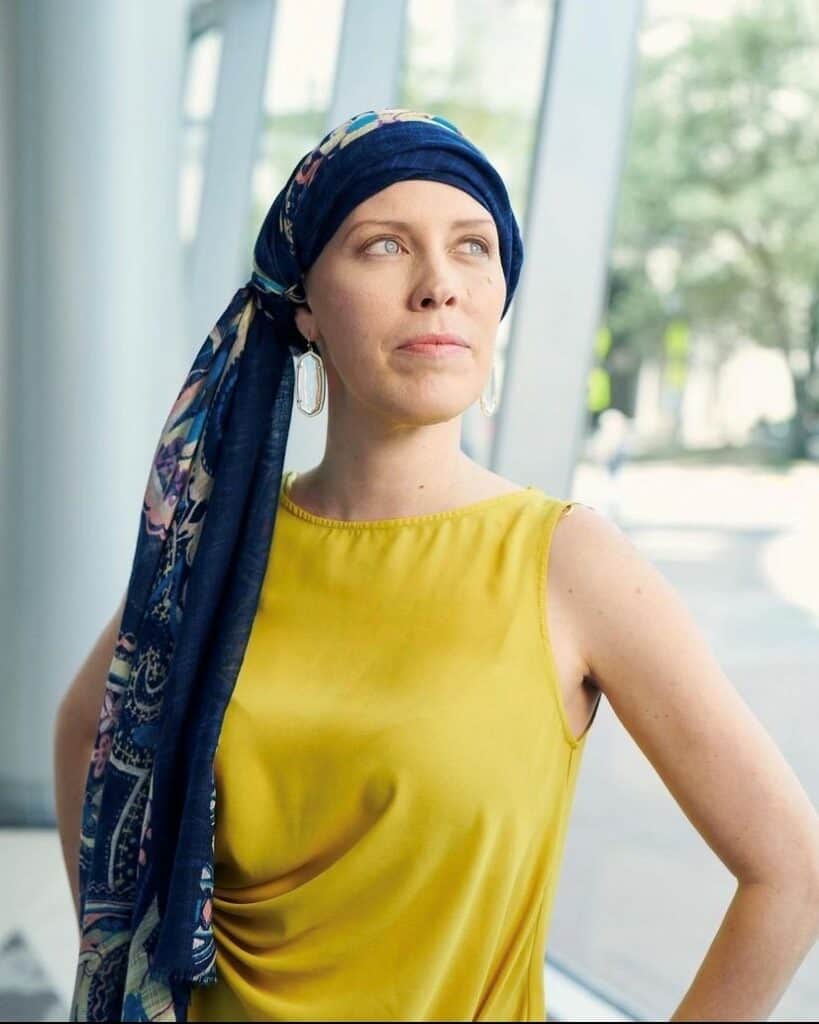
Elvira Velez was 35 when she was diagnosed with triple negative breast cancer. No one in her family except an aunt had ever had breast cancer. Elvira went from not knowing she had any kind of risk for breast cancer to being at high risk. This is her story in her own words.
Breast cancer was a shock.
I’ve always been fairly responsible with my health. When I found a small lump in my left breast, I went immediately to my OB/GYN. She said, “Oh, I think it’s just stress. You’re too young. You don’t have a family history with breast cancer.” And she sent me on my merry way. I went on with my life. I went to Hawaii for work. I kept my life as regular as normal. But my boyfriend at the time said, “You have to check this out” because I would lift my arms and you could see it. It was very visible.
That led me going in for my first mammogram. The technician kept taking pictures and asking me, “Does your mom have breast cancer? Your sister? Your grandmother?” And I kept saying no, no, no and started thinking that this didn’t seem right.
Next, I saw the radiologist. He did a sonogram and said, “I’ll be honest. I think it’s breast cancer. And if it is, it’s very bad.”
I was in shock. How? I was a healthy person. And it was December, I was leaving for Puerto Rico, and he shook his head and said, “You are not leaving until you get a biopsy.” I found out Dec. 26 it was breast cancer. I had so many questions because I had no idea about breast cancer. I didn’t understand anything.
Tests came back that I had a BRCA2 gene mutation, inherited from my mom’s side. She didn’t know. She had never had cancer, her mother either. My treatment was aggressive. I had chemotherapy and a double mastectomy. I had to have a hysterectomy. I resisted that, I didn’t want to do it, but my doctor was worried about uterine cancer.
My body completely changed. I gained weight. I was tired all the time. Going into menopause was one of the most terrible symptoms or side effects.
I told one of my doctors, “I want to be normal.” And she said, “Normality is subjective. You were thinking about the normality you had before, and that version of Elvira is not coming back. This is what you have, and we need to deal with what we have now.”
My sister and mother did genetic testing. My mother tested positive for the BRCA2 gene mutation and had a mastectomy and partial hysterectomy. My brother was very hesitant to undergo genetic testing and he has a daughter. We talked to him and convinced him, and neither he nor my niece have the gene mutation.
This has changed my family’s life. I don’t think parents are prepared to see their kid’s mortality. We always know that we will die someday, but we always think it’s very far away. And, you know, you might be 35 years old and healthy and closer than you think.
After cancer, you’re not the person you were before. I have a lot of faith. I believe in God. Without that, I think I would be bitter and upset that I had to pause three years of my life for cancer. You can’t think of anything else when you’re focusing on your health. But I learned a lot. I’m not the same person, physically or mentally. I don’t get upset about things like I used to. I love my family a lot more. And I have a whole different perspective on life after going through this. My experience has given me meaning and a purpose.
Click here to learn more about breast cancer risk.
Statements and opinions expressed are that of the individual and do not express the views or opinions of Susan G. Komen. This information is being provided for educational purposes only and is not to be construed as medical advice. Persons with breast cancer should consult their healthcare provider with specific questions or concerns about their treatment.



